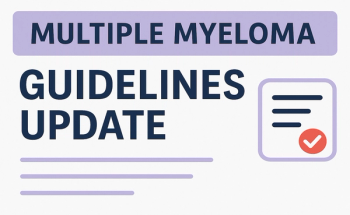
NCCN Updates in Bile Duct Cancer Put Focus on Precision Medicine
The addition of immunotherapy and targeted therapies to the NCCN guidelines in bile duct cancer means that tumor mutation profiling is now called for to guide treatment decisions.
As recently as 2019, the National Comprehensive Cancer Network (NCCN) offered just one guideline recommendation for systemic therapy in biliary tract cancer that was supported by a clinical trial.
Fast forward to 2021, and treatment choices have mushroomed. As noted during last week’s NCCN Virtual Annual Meeting, gemcitabine plus cisplatin remains the preferred combination for first-line therapy. Other trial-supported regimens are on the guidelines, and there is now a preferred option in second-line therapy as well, FOLFOX (folinic acid, fluorouracil and oxaliplatin), along with other recommended regimens in the second-line setting.
For the first-line setting, gemcitabine, 5-fluorouracil, and capecitabine are recommended as single agents, and those agents are also included in 8 different combinations that are recommended to treat unresectable, metastatic disease.
What’s more, the addition of immunotherapy and several targeted therapies means that tumor mutation profiling is now called for to guide treatment decisions, based on the most recent
During last week’s meeting, Robin Kate Kelley, MD, of UCSF Helen Diller Family Comprehensive Cancer Center highlighted the need for a precision medicine approach in cholangiocarcinoma (CCA), or bile duct cancer, citing 4 different targetable genes in intrahepatic CCA and 4 in extrahepatic CCA. Among the targets in intrahepatic CCA, are FGFR2 fusions or rearrangements, which cover 10% to 20% of cases. Ivosidenib is listed in the guidelines as a treatment option for patients with intrahepatic CCA harboring IDH1 mutations, seen in 22% to 28% of cases. Last year, the NCCN Guidelines added pemigatinib,
Heading into the NCCN Virtual Annual Meeting, The American Journal of Managed Care® spoke with the chair of the guidelines committee in Hepatobiliary Cancers: Al B. Benson III, MD, professor of medicine at the Robert H. Lurie Comprehensive Cancer Center of Northwestern University. Portions of the interview that focused on the guidelines’ personalized medicine approach are shared below:
AJMC®: The NCCN Guidelines update in Hepatobiliary Cancers, released March 5, 2021, puts an emphasis on precision medicine across hepatocellular carcinoma (HCC), bile duct cancer, and gall bladder cancer. Can you discuss what you see as the most important aspects of this precision medicine approach?
Benson: I think what is true in all of medicine now is that we are trying to enhance our patient selection, particularly for cholangiocarcinoma and biliary cancers. I think there's increasing evidence that we need to routinely look at next generation sequencing, because there are now subsets of patients for whom there are now FDA-approved treatments—and what we've incorporated in the guidelines is identification of some of these subsets of patients—and linking them to specific drugs.
For example, although rare, there are NTRK fusions. We also encourage people to look for MSI [microsatellite instability] high tumors. There's growing interest in looking at tumor mutation burden (TMB) because of the introduction of immunotherapy to treat patients with hepatic biliary cancers. And also, for example, looking at IDH1 for which there's now a specific therapy, as well as those with FGFR2 fusions or rearrangements for which there are specific agents. Now, in fact, this is an area that continues under clinical trial investigation. And I think it's true for all of these markers were identified.
AJMC®: Over the past two years, the treatment guidelines in cholangiocarcinoma have rapidly evolved. Can we expect more updates in this area?
Benson: Well, immunotherapy is such an important area of research and continues to be. So, clearly, whether it's HCC or glandular carcinoma or gallbladder tumors, there's a great deal of interest in further exploring immunotherapy combinations—not only with other immunotherapeutic agents, but with biologics and with chemotherapy, and so on.
It is impressive that we are getting results—we’re expanding our numbers of regimens for people with hepatobiliary cancers. And this has intensified the research interest; we noticed that there was tremendous interest, for example, in cholangiocarcinoma patients, because these trials tend to accrue patients quite rapidly—even those that are identifying these relatively small subsets of patients. So, it's very encouraging. … The fact that more and more people are routinely looking at next generation sequencing for their patients is enabling our ability to more readily identify subsets of patients who might be candidates for these clinical trials, but also for the agents that are now FDA approved.
Newsletter
Stay ahead of policy, cost, and value—subscribe to AJMC for expert insights at the intersection of clinical care and health economics.








